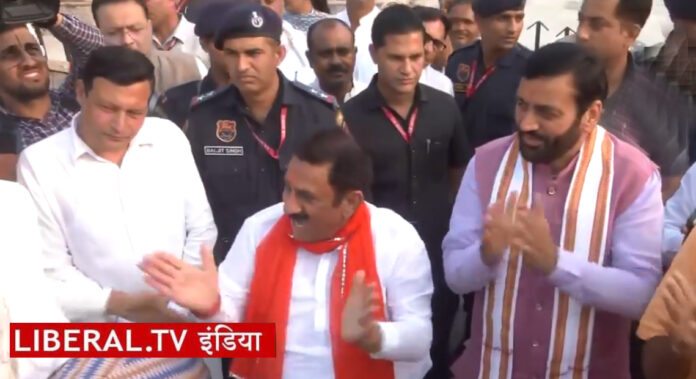In the lead-up to the Haryana assembly elections, a perfect storm brewed for the opposition, particularly the Congress party. Ten years of anti-incumbency sentiment, a palpable Jat frustration, and widespread farmer discontent set the stage for a potential victory. Yet, against all odds, the BJP managed to maintain its grip on power.
One of the pivotal moments came during Congress MP Rahul Gandhi’s controversial remarks in the United States about “ending reservation” in India. This sensitive issue, particularly relevant in Haryana where Scheduled Castes (SC) and Other Backward Classes (OBC) make up significant portions of the population, provided the BJP with a golden opportunity. Although Gandhi attempted to clarify his comments as a misinterpretation, the damage had been done. The BJP skillfully exploited this narrative, framing it as a threat to the social fabric of the state, which resonated deeply with voters.
Farmer dissatisfaction loomed large, especially in areas near the Punjab border, where protests against BJP and JJP candidates were common. Chief Minister Khattar’s remarks, referring to dissenting farmers as “crazy,” only added fuel to the fire. However, the BJP countered this backlash with promises to purchase 24 crops at minimum support prices (MSP), a strategy that appeared to work in their favor just before the elections. Notably, Khattar’s absence from major campaign events helped distance the party from his unpopular stance on agricultural issues.
The BJP’s electoral strategy also involved consolidating support from non-Jat communities, particularly in the eastern and southern parts of the state. This approach not only solidified their base but also allowed them to make significant inroads into traditionally Congress-dominated areas. For instance, in Tosham, BJP candidate Shruti Chowdhary is leading in a seat that had been a Congress stronghold for two decades. The influence of Dera Sacha Sauda chief Gurmeet Ram Rahim Singh, who called on his followers to vote for the BJP, further bolstered the party’s chances, especially given the sizeable follower base in Haryana.
Another key factor in this election narrative was Kumari Selja, a senior Congress leader with her own aspirations for the chief ministerial position. Her prominence within the party brought attention to the internal dynamics and ambitions of the Congress, which could have diverted focus from the larger electoral strategy.
Ultimately, the BJP’s ability to pivot in the face of adversity, exploit sensitive political issues, and consolidate its base proved decisive. While the Congress party may have felt confident leading up to the election, it was the BJP’s strategic maneuvering that secured its position in Haryana once again.



